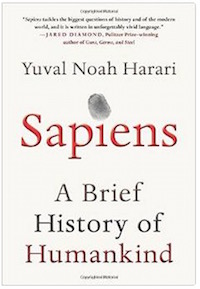“Each individual believes that he or she is living in a world that really exists. The point of SG is to provide clues to the pieces that this is not so and see when they realize they are in a simulation. We considered inserting some obvious clues into their stream of experience, such as sky writing that says “This all a simulation—you are being fooled”, but that was deemed a bit too obvious, even taking into account the limited intelligence of the pieces. To make the game more interesting, and to net the greatest gambling revenues, we decided to make the clues subtler, though of course any of our species would recognize them immediately. We have therefore arranged it so that the world they experience is incoherent and unintelligible—quite literally impossible. This is not so clear on the surface, but in the game it is meant to be gradually revealed, as they apply their limited intelligence to the appearances.”
More about The Simulation Game »

 Amazon
Amazon